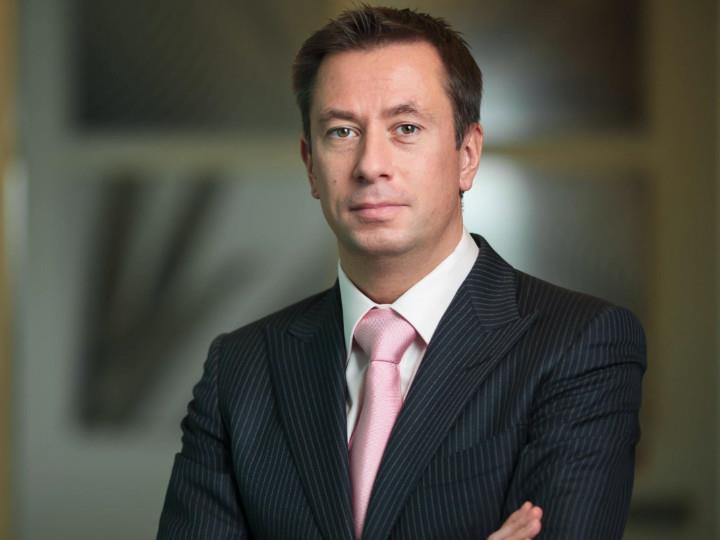by Antonio W. Romero
The European Union has sanctioned over 1200 Russians in response to the invasion of Ukraine. These include state officials, propagandists, oligarchs, and even the Russian President Vladimir Putin himself. Not all of those facing sanctions are part of the regime, however: in early 2022, the EU introduced sanctions against executives and founders of large private companies, arguing that tax revenue from their businesses helps to fund the government’s actions.
The best-known names in this category include top executives from new and less government-controlled industries such as e-commerce, fintech and internet companies. All have stepped down from their roles because of the sanctions.
Now, many of these former executives are reportedly in talks with the EU about the possibility of having their sanctions lifted.
But who exactly are the executives contesting European sanctions? Why are they doing it, and how realistic are their chances of success? To answer these questions, let’s start by examining the case of Dmitry Konov, the former CEO of petrochemicals manufacturer Sibur. Konov advocated his position, appealing the personal EU sanctions against him and regretted the rupture of business ties between Russian and European companies.
Konov is also broadly representative of the other executives contesting their sanctions: like them, he is a relatively liberal technocrat with strong ties to Europe and a successful professional record of building his company into an industry leader.
Konov is a high-flier in Russian petrochemicals. Market intelligence company ICIS named him as one of the most influential senior executives in his field, placing him alongside managers from Belgium’s Solvay and Britain’s Shell Chemicals.
Konov has been CEO of the Sibur for almost 16 years, in which time he has overseen a major overhaul of the company. Sibur was on the verge of bankruptcy when Konov joined the Sibur’s management in 2004. He helped to develop a new strategy, which included modernization of production facilities, and was promoted to the CEO role in 2006. While previously liquefied petroleum gas (LPG) – a low-carbon fuel – had been a major export product for Sibur, Mr. Konov decided to further process residuals of oil and gas production to make value-added plastics. This helped to transformed Sibur into the country’s biggest petrochemicals producer, with a turnover of $16bn in 2021.
In his time as CEO, Konov had extensive dealings with the EU. It is Sibur’s largest single market, and also provides Russia with much of the equipment and technology needed for petrochemicals production.
One noteworthy example is the company’s Zapsibneftekhim site – the largest petrochemicals complex in Russia – which was completed in 2020 and cost $8.8bn. Germany’s Linde and Thyssenkrupp, the Netherlands’ LyondellBassell and France’s Technip were all involved in the construction of the facility, providing expertise and equipment.
In turn, Sibur is a supplier to a range of large European companies including Michelin, Pirelli, and Nokian.
In his article for the Association of European Businesses in Russia, Konov argued that this cooperation between Russian and European markets helps both parties, and that Europe too stands to lose if relations continue to worsen.
“As someone who completed an MBA in Europe and has many personal and professional ties in the region, I am deeply saddened by what has happened to our business partnership,” he wrote, referring to an MBA he received from Switzerland’s IMD Business School. “Cooperation in the chemical industry between Russia and the EU has been natural and mutually beneficial due to our geographical proximity and complementary strengths,” he insisted.
Konov also wrote that the geographical proximity of Europe and Russia means that finding alternative suppliers will mean consumers and producers from both jurisdictions will need to pay higher prices.
On an industry-wide level, Konov has argued that sanctions damage supply chains globally and hurt consumers. “During these difficult times, it is essential for European and Russian companies to maintain a dialogue and continue cooperation in the areas where it’s still possible. I believe that political tensions will eventually be overcome and that it will become possible to restore cooperation and trade in the future,” he wrote.
With economic arguments against sanctions aside, however, Konov also told AFP newswire: “I don’t think it’s a fair decision based on what is provided as evidence and based on the reasoning set out in the EU Council decision.”
He added that Sibur pays most of its taxes on a regional level, not directly to the federal government, so the assertion that it provided a “substantial source of income to the government” was unfounded.
Modest advances in the relationship between Europe and Russia augur well for Konov. The resumption of grain shipping in the Black Sea is one example, and the technocrats disputing European sanctions – there may be as many as 40 of them – will be hoping that their cases will also soon be evidence of collaboration between the two jurisdictions gradually improving.
It remains to be seen whether the EU will be persuaded by Konov et al., however. Sources cited by Bloomberg have said that the European Council’s legal service believes some of the sanctions were imposed on weak grounds. The EU’s decision on these cases will be one to watch closely.




 By: N. Peter Kramer
By: N. Peter Kramer

